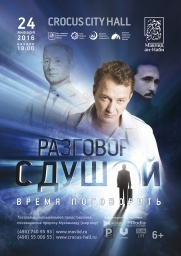Speech of Rushan Abbyasov,
Deputy chairman & head of Administration of Russia Muftis Council
At the International conference “Religion for the Benefit of People”
August, 3-4, 2011
Dear organizers,
Dear participants and guests of the respected conference.
Let me first of all pass you the warmest greetings from the chairman of Russia Muftis Council mufti sheikh Ravil Gaynutdin, who wishes the best results of the present conference for the benefit of the Interreligious relations of our countries and communities:
Assalamu aleikum wa rahmatullahi wa barakatuhu,
Peace be upon you, The God’s Mercy and Blessings.
The number of Muslim in Russia is estimated at 25 million, which is about one sixth of the total population.
Muslims and Christians have been coexisting peacefully on the territory of the present Russian state for more than a thousand years. The first Muslims came to this territory at the end of the VII century in Dagestan by the companions of the Prophet. In 922 the ambassadors of the Caliph of Baghdad attested formally Tatar tribes accepting Islam. The official baptising of Russia took place 66 years later in 988.
The representatives of different religious communities used to live side by side, worked together, defended the common motherland. At the same time, they firmly adhered to their faith and protected it from external attacks. Different communities often struggled together when it came to foreign invasions. However, our countrymen have never been in real conflict with each other on religious grounds. Thus, Russia has maintained an effective system of inter-faith relations based on the principle of mutually respectful neighborhood.
In the late 20-s of the 20th century, the Soviet government officially banned profession of any religion. The authorities started to close mosques, churches, synagogues. Soon, the publication and distribution of religious literature became a penal act. The Bible, the Koran and other religious books were confiscated from the libraries and homes and destroyed. It was only in the mid-80s that believers were able again to more or less openly practice their religions. But the true religious revival began with the adoption of the law "On freedom of religion" by the Supreme Council of the Russian Federation in 1990.
Russia Muftis Council which was created in 1996 and since then has been the largest centralized organization representing the interests of Muslims and Muslim organizations from all regions of the Russian Federation, has been making a valuable contribution to the development of Russian Muslim community.
Russia Muftis Council is one of the founders of the Interfaith Council of Russia, which was established on December 23, 1998. The Council brings together the religious leaders and representatives of the four traditional religions in Russia: Orthodoxy, Islam, Judaism and Buddhism. It is an important mechanism for the interfaith dialogue and has been operating successfully and fruitfully for over a decade. The experience it has gained proved to be attractive to the independent States of the former Soviet Union. And the religious leaders of these countries established the Interfaith Council of the Commonwealth of Independent States.
Russian Muslims have been also participating actively in the work of the Council for cooperation with religious associations under the President of Russia, which unites the representatives of all world religions.
But the interaction between religious exists not only at the level of clergy and officials. For instance, the traditional charitable activities are conducted jointly such as blood donations, helping to the elder generation, and various events dedicated to Russia's victory in World War II, - these all have become traditional in Russia, not mentioning the mutual sports events.
I believe that today we should initiate interfaith dialogues on regional and global scale. The time has shown that a reasonable system of cooperation between the religions retains and emphasizes a unique and distinctive character of each of them.
Unfortunately, we have to acknowledge that our religions have their enemies as well. Who, on the one hand, want to cause a clash between us, and on the other hand, want to bring the followers of our religious into a false "unity" based on the religious and moral indifference giving priority to the purely secular interests. Therefore, as religious leaders we need each other to help our believers remain themselves in a changing world.
In a practical way, the interaction between the faiths could be directed towards protecting the role of religion in public life, fighting with the defamation of religion, opposing tthe intolerance and xenophobia, protecting sacred sites, preserving the places of worship, promoting joint peaceful initiatives.
Another important thing is the role of mass media in promoting the interfaith dialogue. Unfortunately nowadays the media is reluctant to cover the events with positive results on the cooperation of the faiths. This is their biggest responsibility and duty in front of the society and it is almost never fulfilled. We need to attract more mass media to the interfaith dialogue issues as the media has a tremendous influence on the public. One negative coverage stating the religious beliefs could lead to groom results in the society.
The God tell us in the Holy Writ: O mankind, indeed We have created you from male and female and made you peoples and tribes that you may know one another. Indeed, the most noble of you in the sight of the God is the most righteous of you (Quran, 49:13)
So lets us know each other and cooperate and let us give each other the best examples.
Thank you for your attention.
 Mawlid an-Nabi in Crocus City Hall
Mawlid an-Nabi in Crocus City Hall
